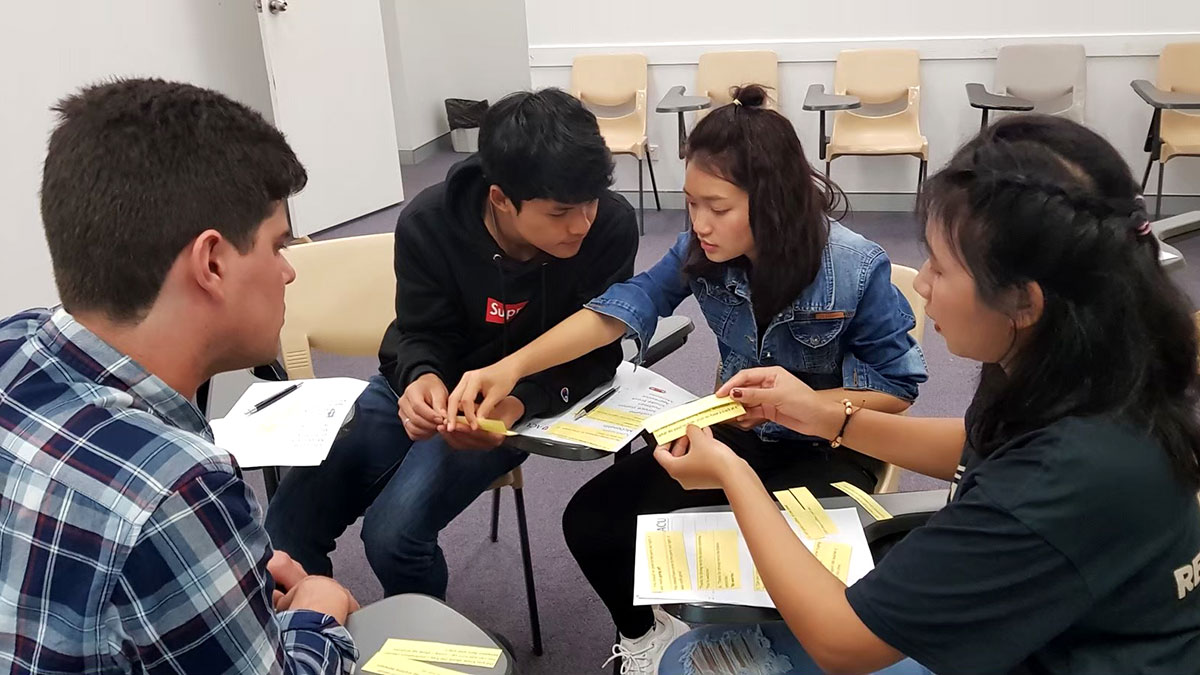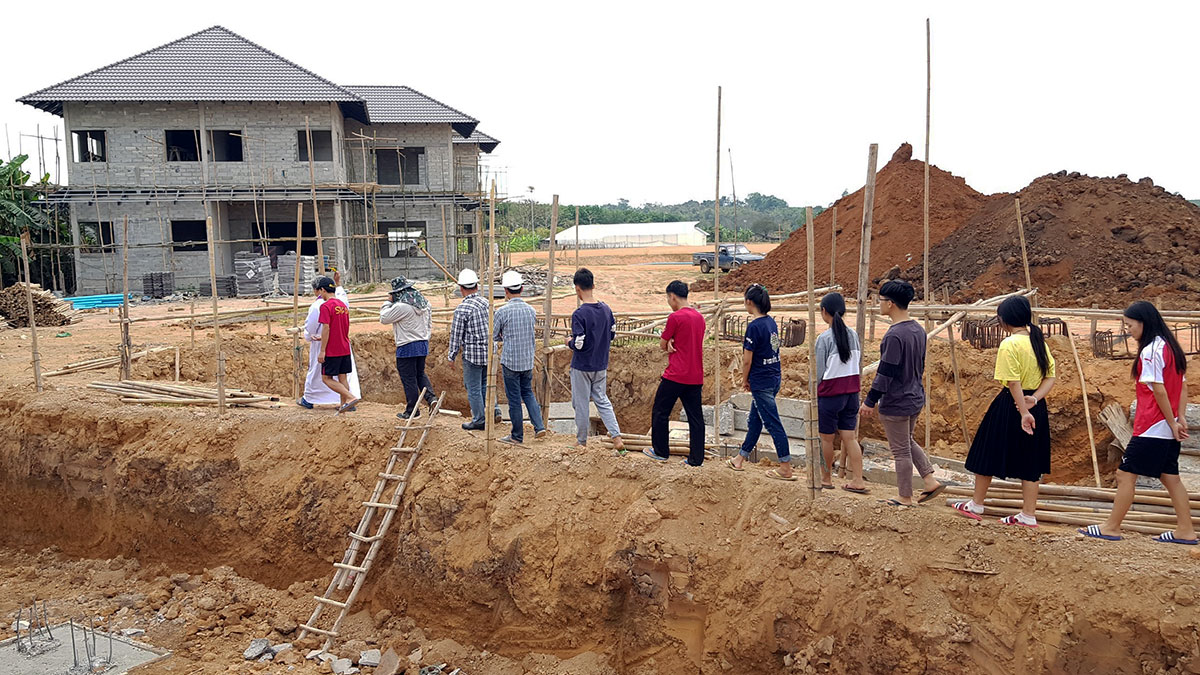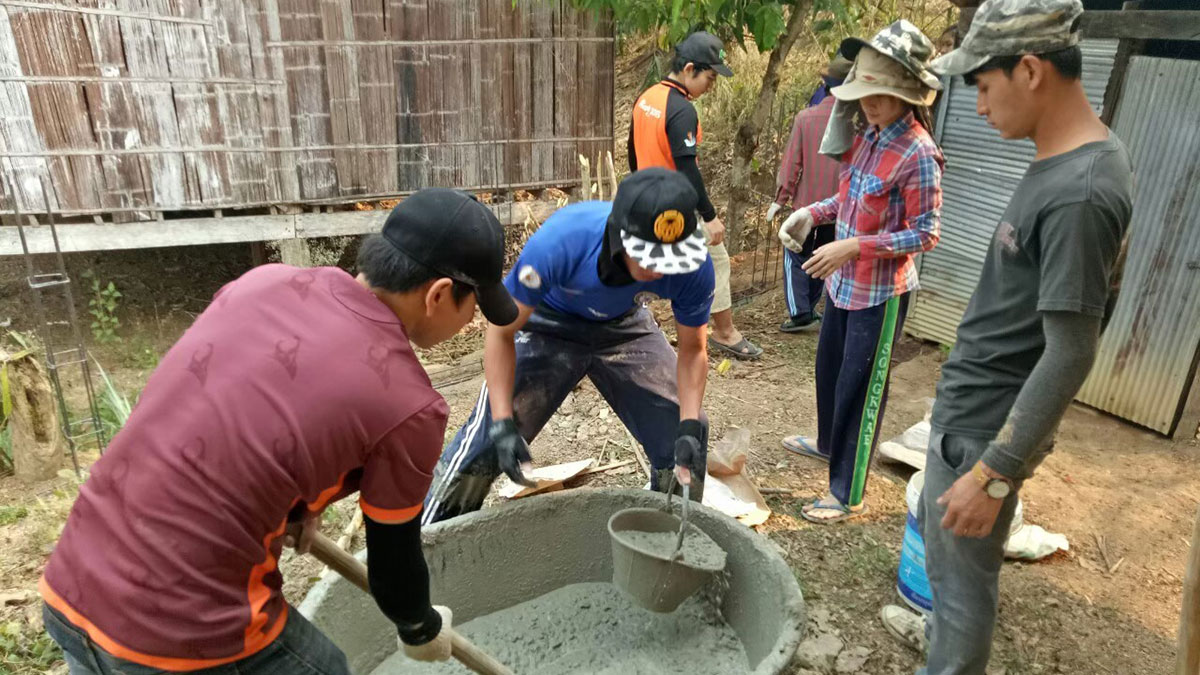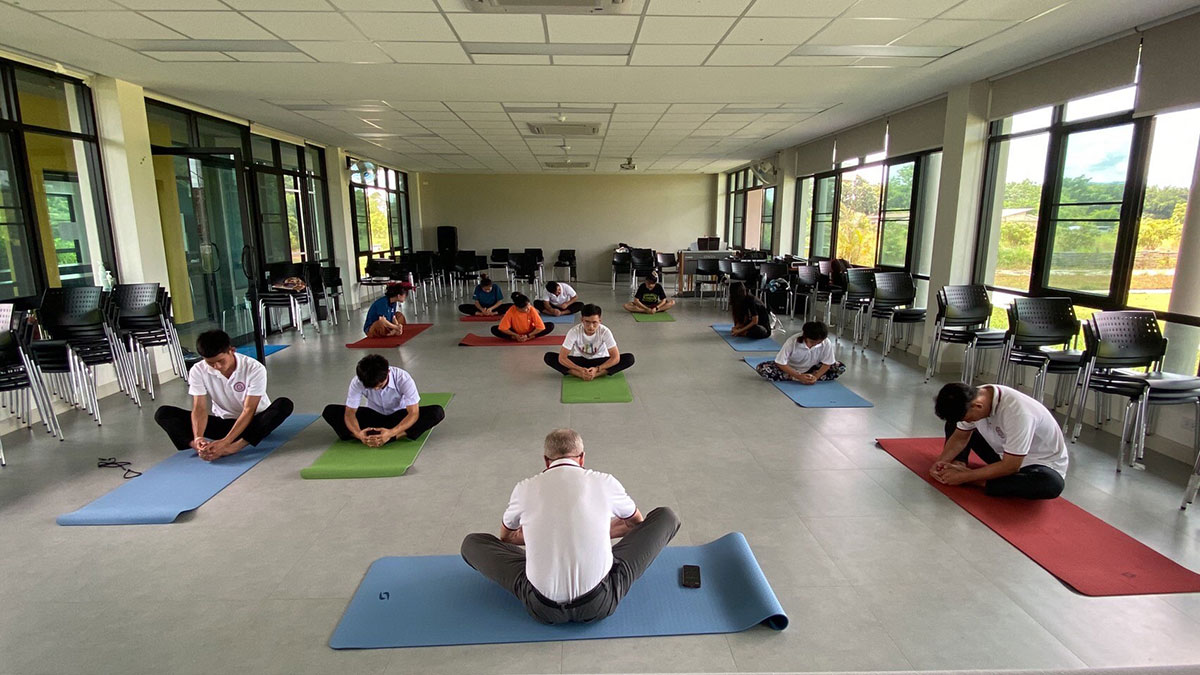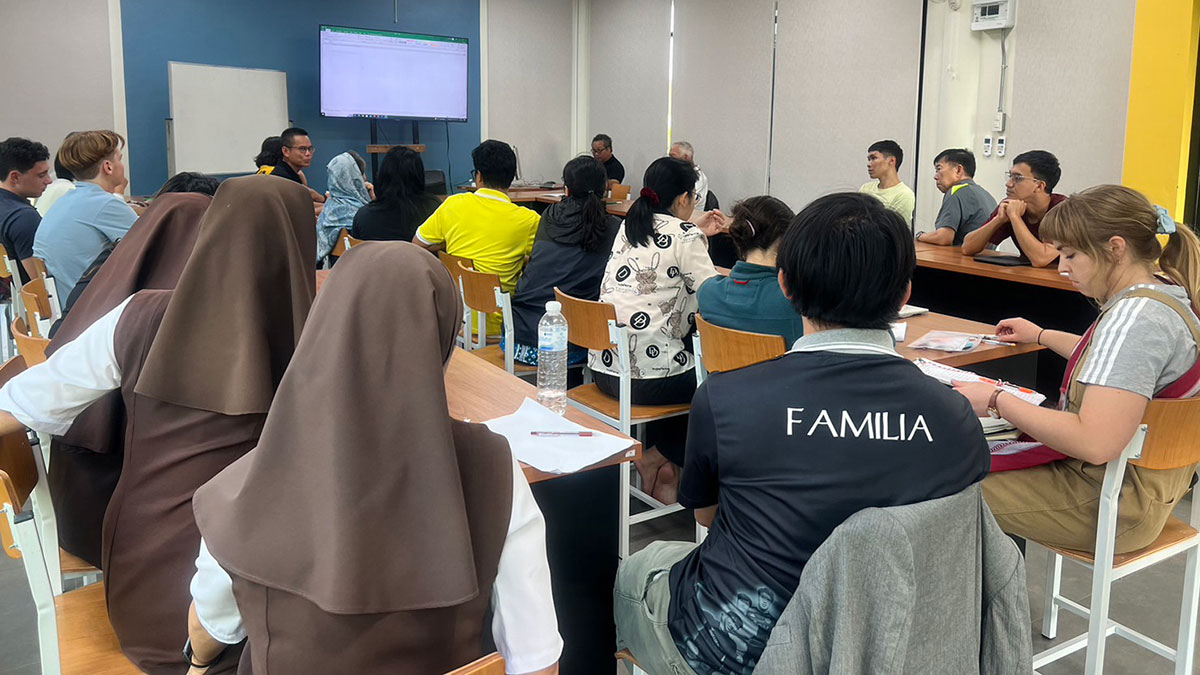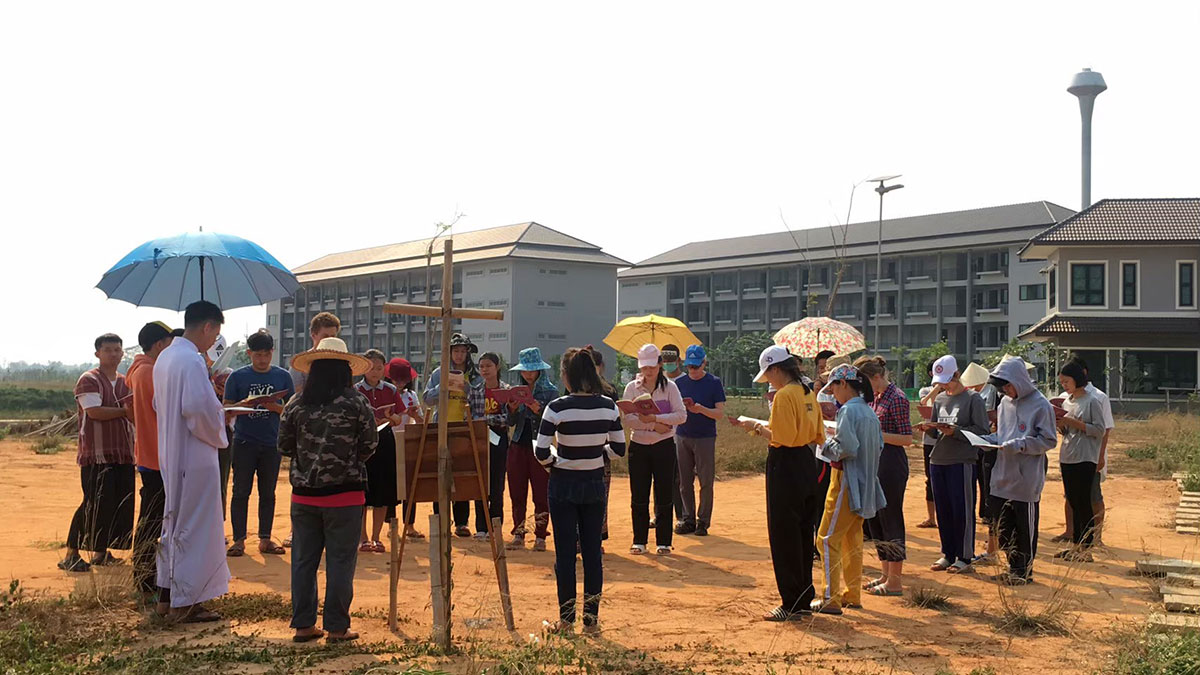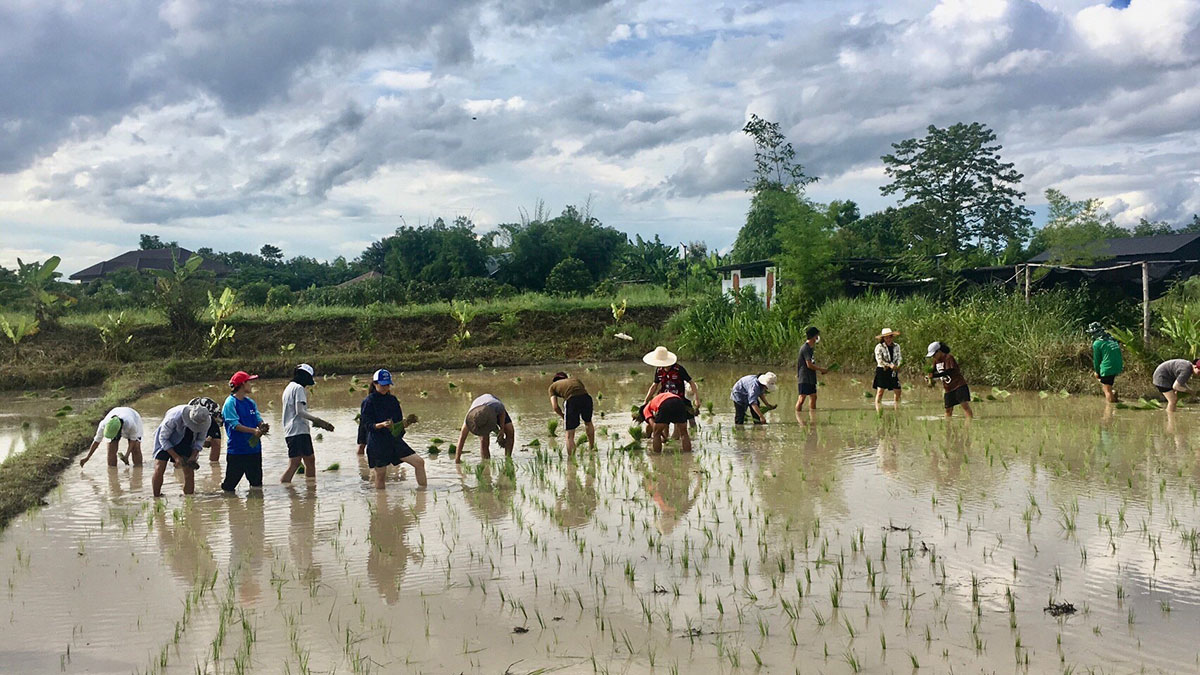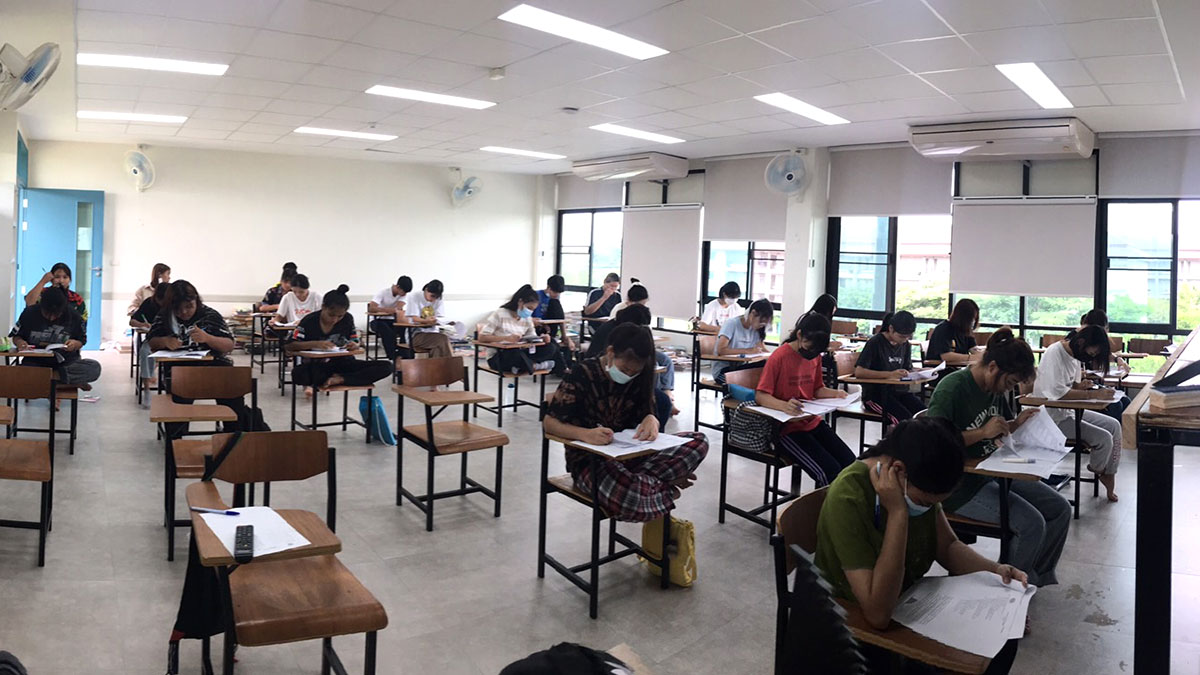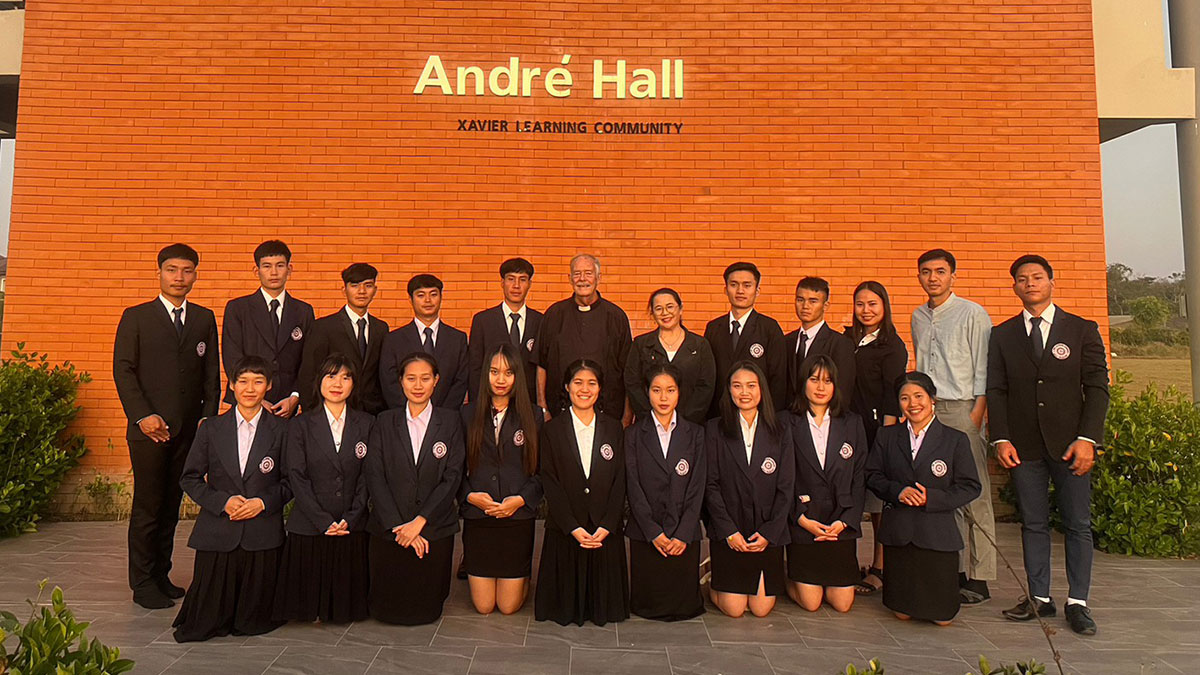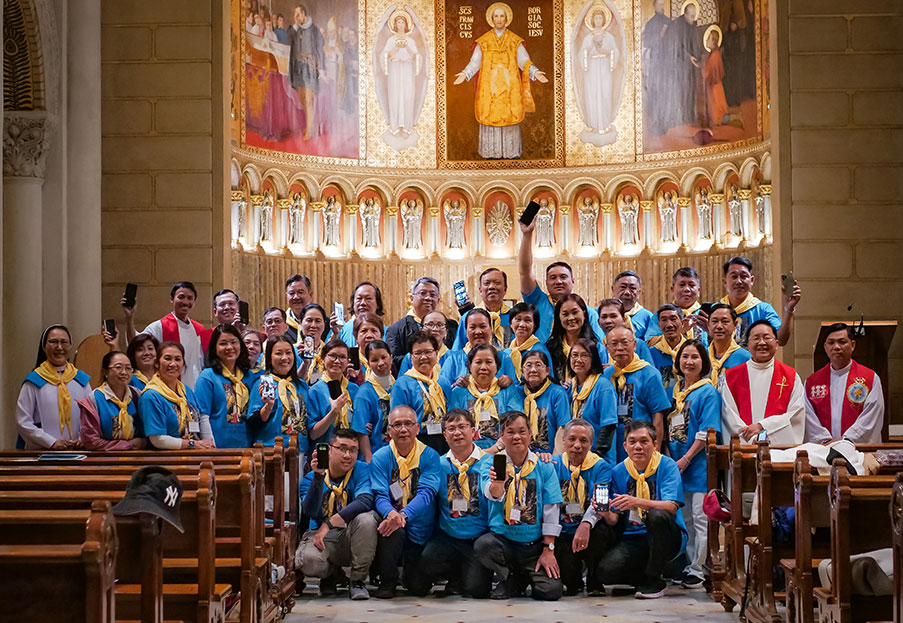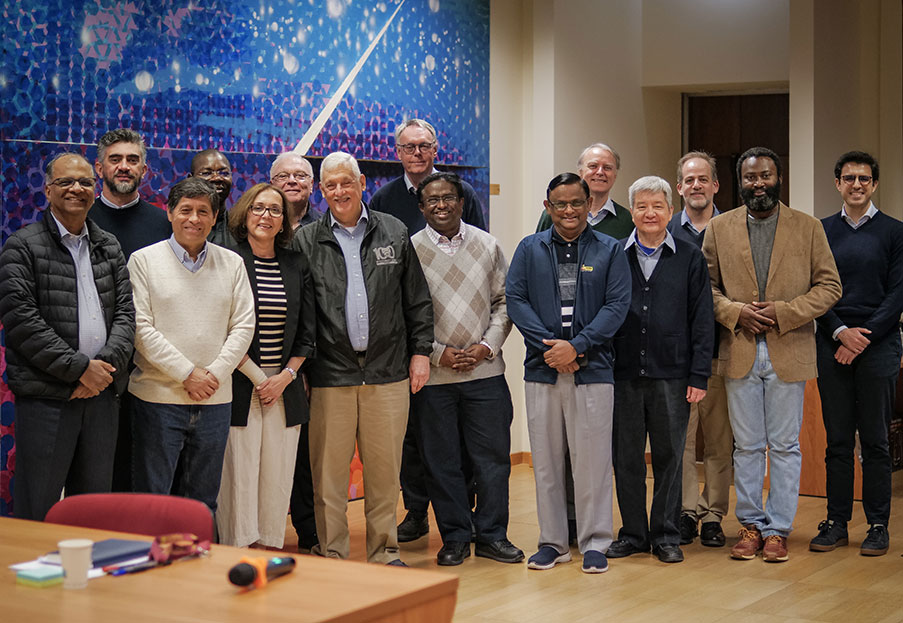Purification, illumination, confirmation, transformation: a Jesuit parcours trail in higher education
In Mae Chan, in the northern Thai province of
Chiang Rai, you will find the youngest higher education project of the Society
of Jesus. It is the Xavier Learning Community, a campus that has been under
development for nearly five years, with nearly a hundred residential students
and eight Jesuits. But above all, an innovative project of a student community
that meets the specific needs of its clientele. We spoke to the current
director, Jesuit Vinai Boonlue.
Father Vinai, XLC is neither a school nor a university. You have chosen to call it a “learning community”; why?
The
law in Thailand only allows the use of the words “school” and “university” for
institutions regulated by the state. We have created an alternative form of
higher education that caters to the needs of young people who can be described
as ‘poor,’ those who live near the northern borders of the country. Many are
indigenous people from the hill country; others are from Myanmar and have no
legal status in Thailand. They are marginalized and can benefit from a higher
education program designed for them.
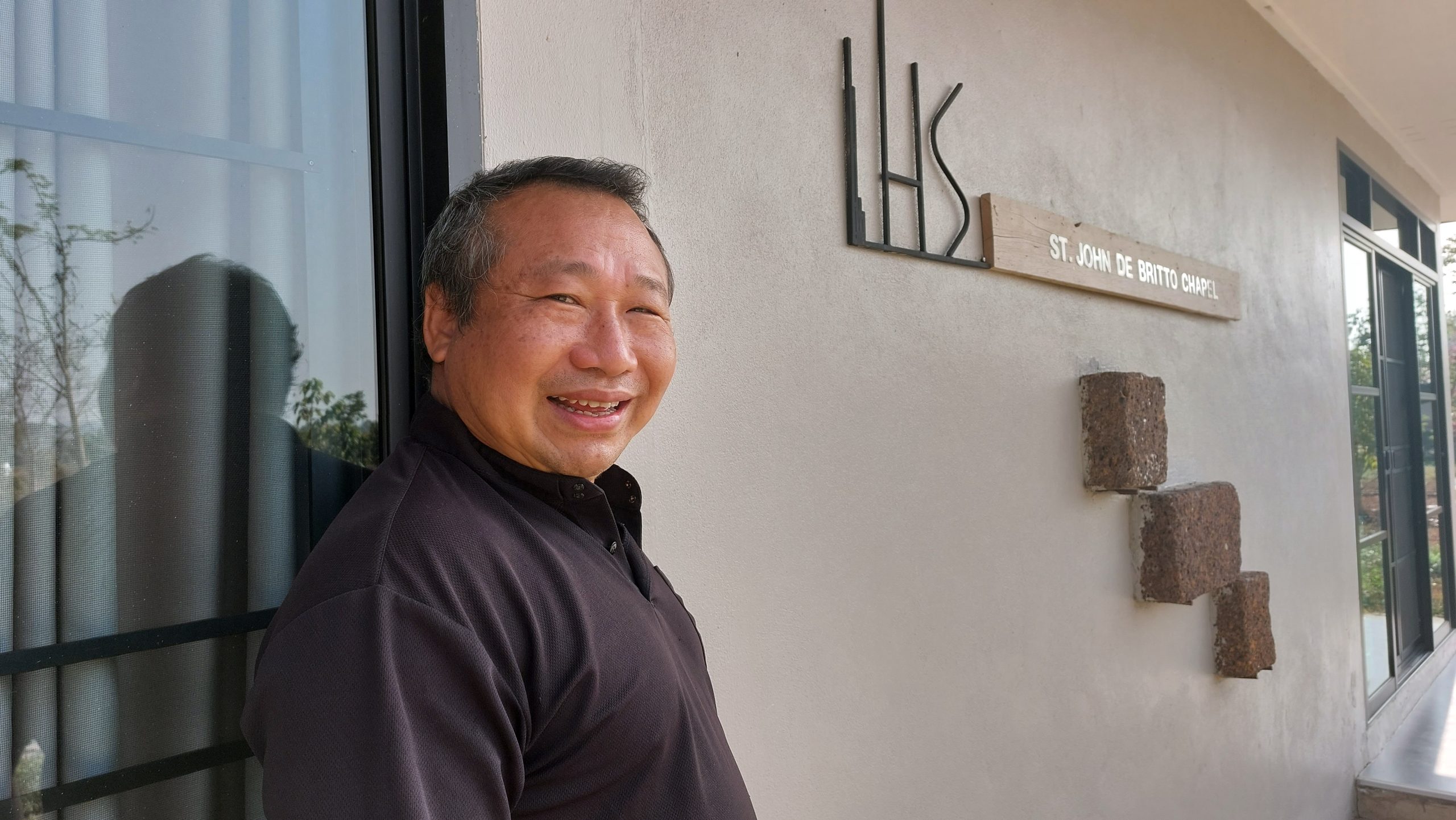
Fr. Vinai Boonlue, SJ, Director of the Xavier Learning Community.
We have made our center a “learning community” and put it under the patronage of the great missionary Francis Xavier. This is not just about teaching, but we want to form a community where we Jesuits, and our marginalized students, grow together to offer young people a sustainable future.
Tell us about your students.
They have finished their secondary education but in many ethnic minority cultures the possibilities of going further are very limited. This is primarily because of their marginalization by the Thai majority. The ‘hill tribes’ in the Thai language are identified as ‘the others,’ while the majority define themselves as ‘ours.’ Here we seek to change this dynamic of narrow nationalism so that our young people feel that the nation includes all ethnic groups in the country.
We
don’t do it in a demanding way or by raising our voices: that’s not part of
Thai culture. We do it by giving opportunities to young minority men and women
to advance in a Thai society that can become truly multicultural.
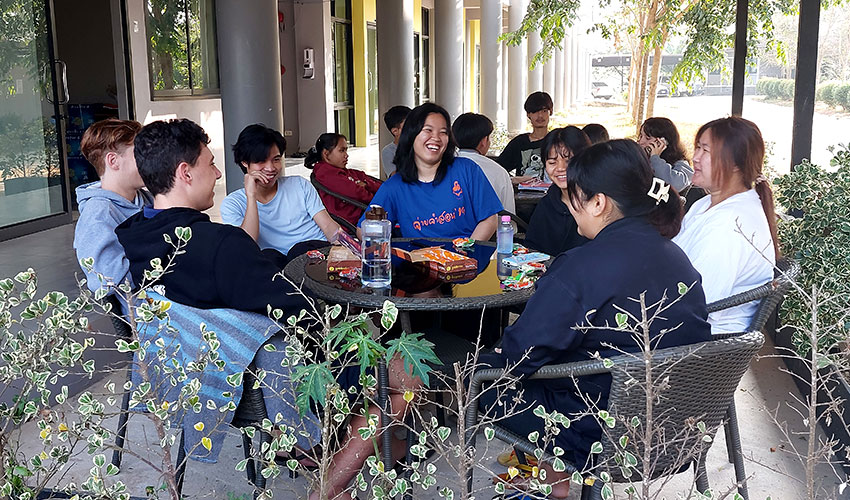
English conversation with Australian volunteers.
How is this a specifically Jesuit project?
It is a matter of social justice; we work for the poor and, of course, as a work of education and in the spirit of the 3rd UAP (Universal Apostolic Preference), we accompany young people towards a future of hope. These are young people who have been neglected in many cases; orphans, young people who have fled their country, talented young people for whom the cultural context has not provided any opportunity. They come here with a very limited vision of the future; one could even say that many are without hope, without direction for their lives.
For example, the law in Thailand states that anyone who completes a university bachelor’s degree is entitled to apply for citizenship. By opening this door, we Jesuits are helping young people without status to gain recognition of a basic human right, that of citizenship, of having a place in society.
You offer a framework of common life and an environment clearly marked by the Christian tradition. But not all students are Catholic?
First
of all, with regard to living together, we know that living in a community with
people from different cultures is a great challenge. Here, the members of the
community share all the responsibilities of the campus. Everyone takes turns
cooking, maintaining the buildings, planting rice and other crops to provide
some of our food. This is, of course, in addition to following a demanding
curriculum. The Xavier Learning Community
offers a sharing of space, ideas, and the talents of all.
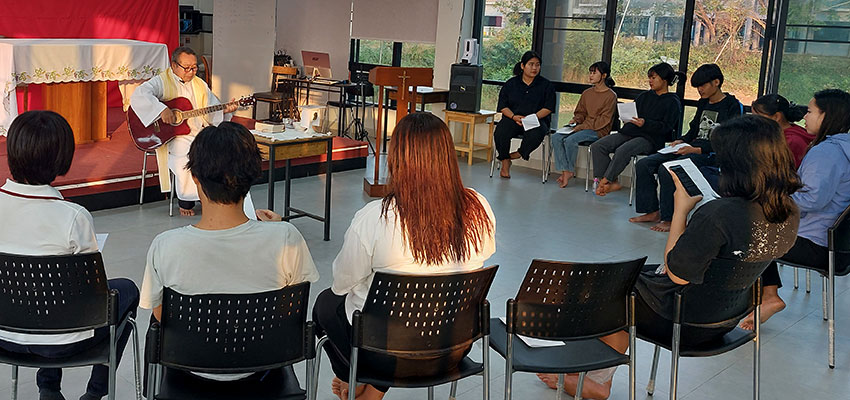
The Eucharist, as a way to start the day.
And this fits in well with the Christian dynamic we offer, including participation in times of reflection, prayer, liturgical celebrations. We present a Catholicism that is not based on words or definitions - which are often divisive - but on self-giving, on living together, on the intuitions of Ignatian spirituality which, as we know, are valid for so many people who are not part of the Catholic tradition.
In concrete terms, through weekly reflections, celebrations in small groups and then all together, and retreats at the end of each term, we invite the young people to follow a path inspired by several elements of the Spiritual Exercises of St Ignatius. In the first year, with the Principle and Foundation in mind, we invite them to get to know themselves and to reconcile with themselves and their culture. In the second year, they seek to find the necessary light to make the right choices, to make an election. In the third year, it is the occasion for confirmation, the test of perseverance, the confrontation of obstacles - the third week. In the fourth year, it is the invitation to celebrate and be grateful for the transformation of one’s life, in the spirit of the ‘ad amorem’ contemplation.
In
short, the Xavier Learning Community
invites marginalized young people to go beyond their limitations not only
through studies at the higher education level, but through a parcoursjourney of purification,
illumination, confirmation and transformation of their lives. Is this not a
fundamentally Jesuit project?
